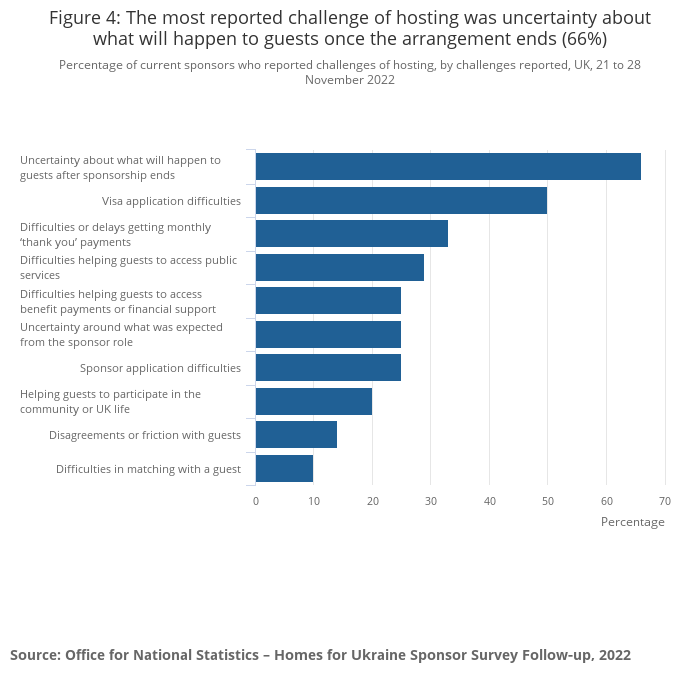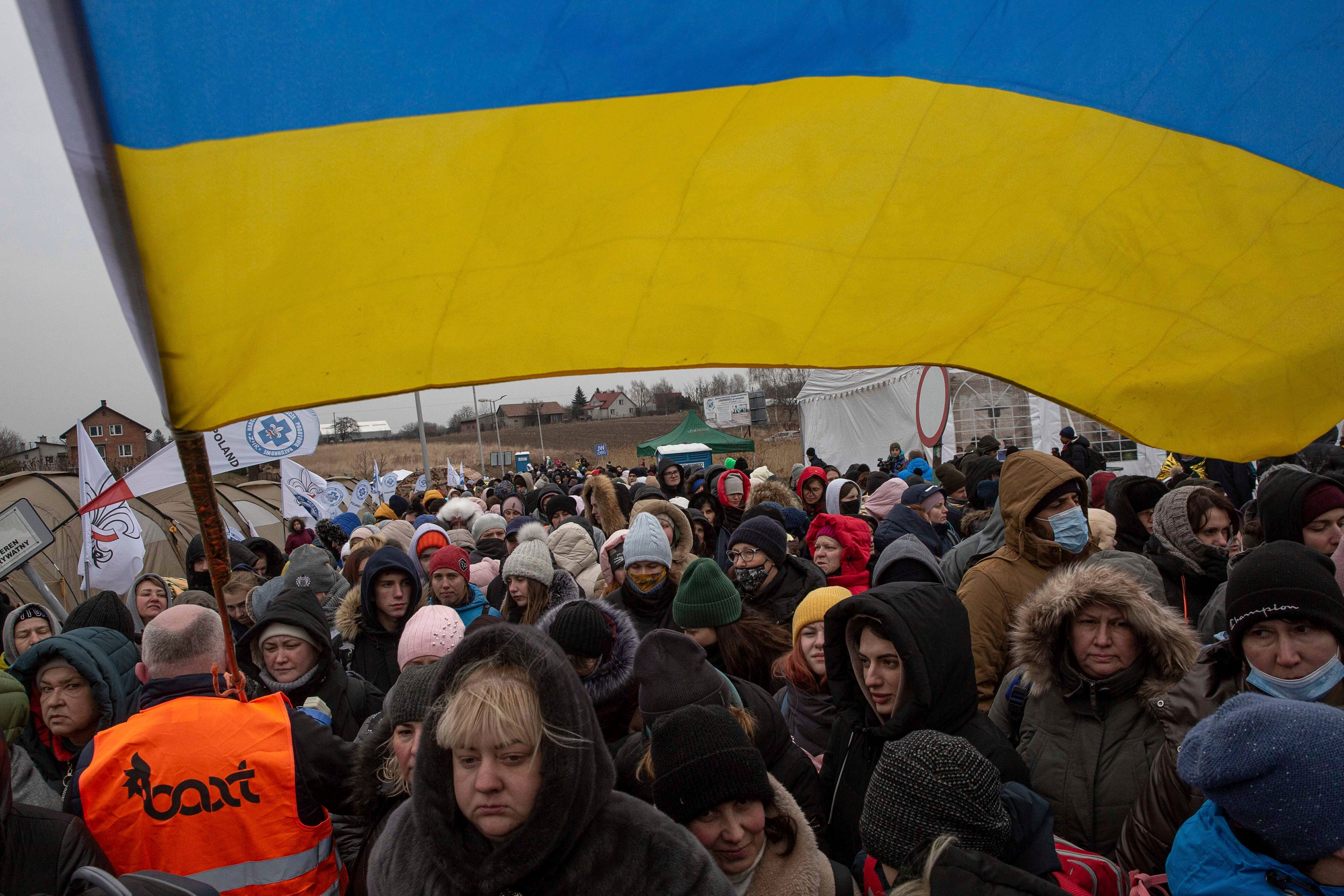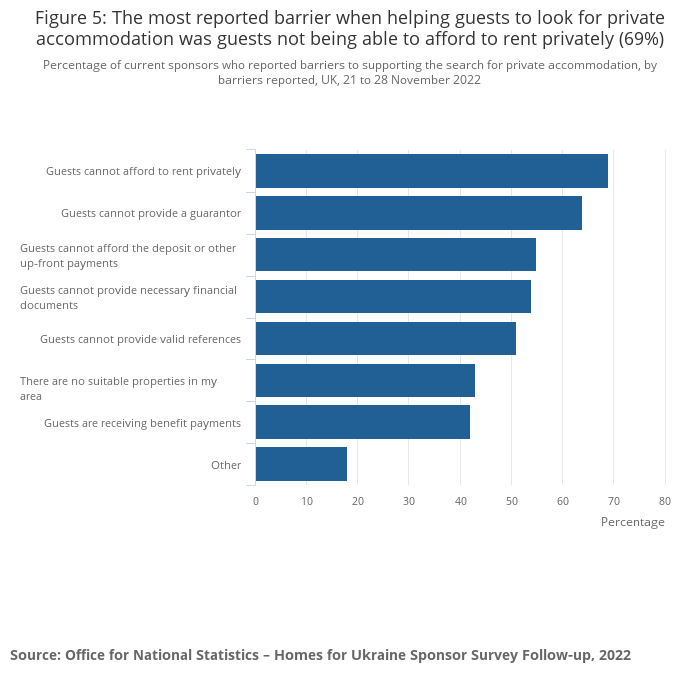
One in five Homes for Ukraine hosts are struggling to help families due to the rising pressures of the cost of living crisis, the ONS has found.
The sponsorship scheme allows Ukrainian nationals and their relatives to come to the UK if they have a sponsor who can provide accommodation for at least six months.
The percentage of adults who said soaring prices impacted their ability to provide support on the scheme “very much” has doubled in five months, with 18 per cent reporting difficulty compared to nine per cent in July.

The majority of hosts on the scheme said they had additional utility costs, and over half said they also had to manage extra transport costs.
Around a third of sponsors reported difficulties or delays getting the monthly £350 ‘thank you’ payments from the government, despite almost all sponsors having applied for the payment.
The government recently increased the payment from £350 to £500 on 14 December as an incentive for more hosts to come foward.
‘Thank you’ payments will also be extended from 12 months to two years, so that guests who may not yet be ready to move into independent accommodation can stay in sponsorship for longer where sponsors are willing to extend arrangements, according to the government.
It comes as over half of hosts said an increase in the monthly payments from the government would encourage them to provide accommodation for families beyond 12 months.

Guests who are planning to move out from the hosts’ accommodation make up 69 per cent, while 11 per cent plan to return to Ukraine.
The majority of those planning to stay in the UK said they were unable to rent privately, were not able to provide a guarantor and over half said they could not afford the deposit or other up-front payments.

The data was collected between 21 and 18 November 202 and is the second time the ONS has published data on sponsors under the Homes for Ukraine scheme and it warned that the figures are experimental.
Earlier this year the ONS surveyed all UK adults registered with the scheme as of July 7 in collaboration with the Department for Levelling Up, Housing and Communities (DLUHC).







